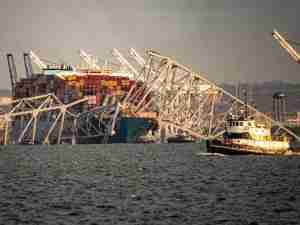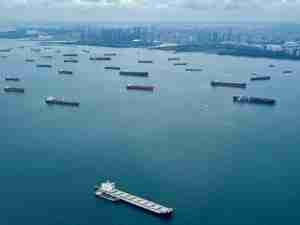Revision of Import Demurrage and Import & Export Detention Charges in the United States, Effective January 1, 2019
IMPORT
Free time will commence 0800 the first business day following discharge of the container at an ocean terminal, or arrival of a container at a rail ramp or an inland CY (owned or contracted by Carrier), except in Baltimore, Seattle, and Philadelphia. In Baltimore, Seattle, and Philadelphia, free time will commence 0800 the first business day following the vessel departure from the terminal.
After expiration of free time, equipment remaining on the delivery port, point, or alternate port facility will be assessed demurrage. Demurrage charges will apply per calendar day including Saturdays, Sundays and holidays.
Free time at Ocean Terminals and Inland CY locations (except as otherwise noted below and at rail facilities where free time is according to the rail providers tariff):
Type |
DRY/NON- OPERATING REEF |
SPECIAL |
OPERATING REEF |
Days |
4 |
2 |
2 |
Applicable to operating reefer cargo for the commodity meat at all U.S. ocean terminals except: Baltimore, MD, Boston, MA, Jacksonville, FL, Mobile, AL, Newark, NJ, Port Everglades, FL, Staten Island, NY
Type |
OPERATING REEF |
Days |
4 |
Applicable to CY delivery cargo at rail ramps for equipment use only, where the rail provider collects storage directly from the customer according to their tariff:
CSX Rail Ramps
Type |
DRY/NON- OPERATING REEF |
SPECIAL |
OPERATING REEF |
Days |
4 |
4 |
4 |
Rail Ramps Except CSX
Type |
DRY/NON- OPERATING REEF |
SPECIAL |
OPERATING REEF |
Days |
3 |
3 |
3 |
Charges per calendar day after free-time except as otherwise noted below:
Days after free time expiration |
DRY/NON- OPERATING REEF |
1st Day to 4th Day |
225 |
5th Day to 9th Day |
275 |
Day 10+ |
325 |
Days after free time expiration |
SPECIAL |
OPERATING REEF |
1st Day to 3rd Day |
400 |
400 |
4th Day to 7th Day |
500 |
500 |
Day 8+ |
550 |
550 |
Days after free time expiration |
Shipper’sowned |
1st Day to 4th Day |
175 |
5th Day to 9th Day |
225 |
Day 10+ |
275 |
Exceptions to above:
APM Terminal in Port Elizabeth New Jersey, PNCT (Port Newark Container Terminal), Global Terminal Jersey City, Maher Newark Terminal, Global Container Terminal, Bayonne, New Jersey and Howland Hook, Staten Island, New York.
Charges per calendar day after free-time
Days after free time expiration |
DRY/NON- OPERATING REEF |
SHIPPER’S OWNED |
1st Day to 4th Day |
290 |
290 |
5th Day to 9th Day |
395 |
395 |
Day 10+ |
460 |
460 |
Days after free time expiration |
SPECIAL |
OPERATING REEF |
1st Day to 3rd Day |
510 |
510 |
4th Day to 7th Day |
665 |
665 |
Day 8+ |
765 |
765 |
Charges per calendar day for use of equipment at rail ramps, applicable to CY delivery cargo, where the rail provider collects storage directly from the customer according to their tariff:
Days after free time expiration |
DRY/NON- OPERATING REEF |
1st Day to 4th Day |
115 |
5th Day to 8th Day |
160 |
Day 9+ |
190 |
Days after free time expiration |
SPECIAL |
OPERATING REEF |
1st Day to 3rd Day |
310 |
310 |
Day 4+ |
415 |
415 |
Demurrage is the daily charge assessed to the shipper for use of the land and services provided at the carrier’s load/discharge port, rail ramp or inland container yard (CY) facility, when the cargo remains in such facilities beyond the permitted free time as stipulated per tariff or contract. Where storage is paid directly to rail facilities for land use, demurrage is the daily charge assessed to the shipper for use of equipment only. Working days are used to calculate free time, whereas calendar days are used to calculate days and charges beyond free time. These charges may be charged to the shipper by the terminal operator, in accordance with their tariff. These charges will be charged to the cargo interest only once.
When the facility is closed for a full working day during the freetime period, the day will not count against the cargo freetime. Partial day closures are considered as a full working day and count towards freetime.
In order for the carrier to ensure store door delivery of cargo prior to the expiration of free time the following requirements must be met no later than noon two business days prior to the expiration of free time:











